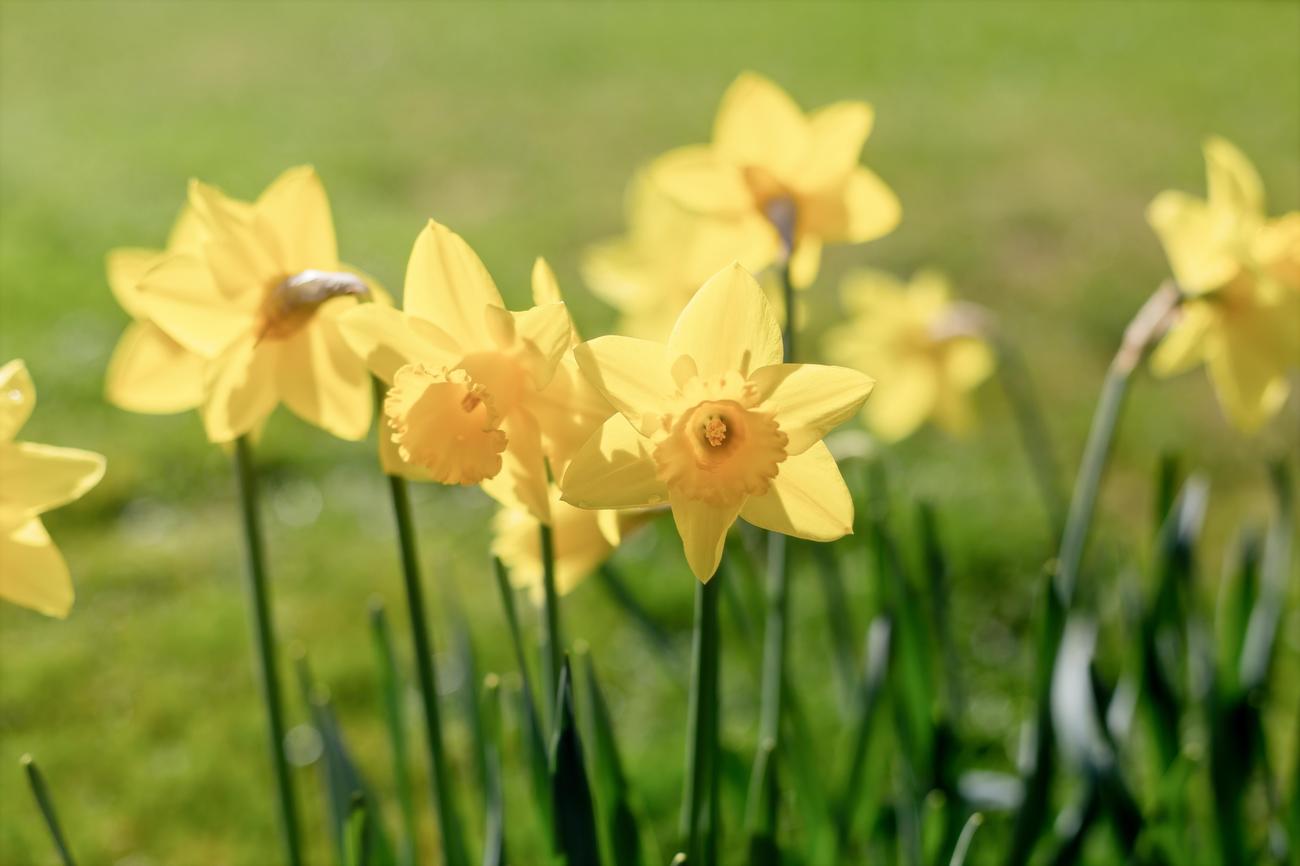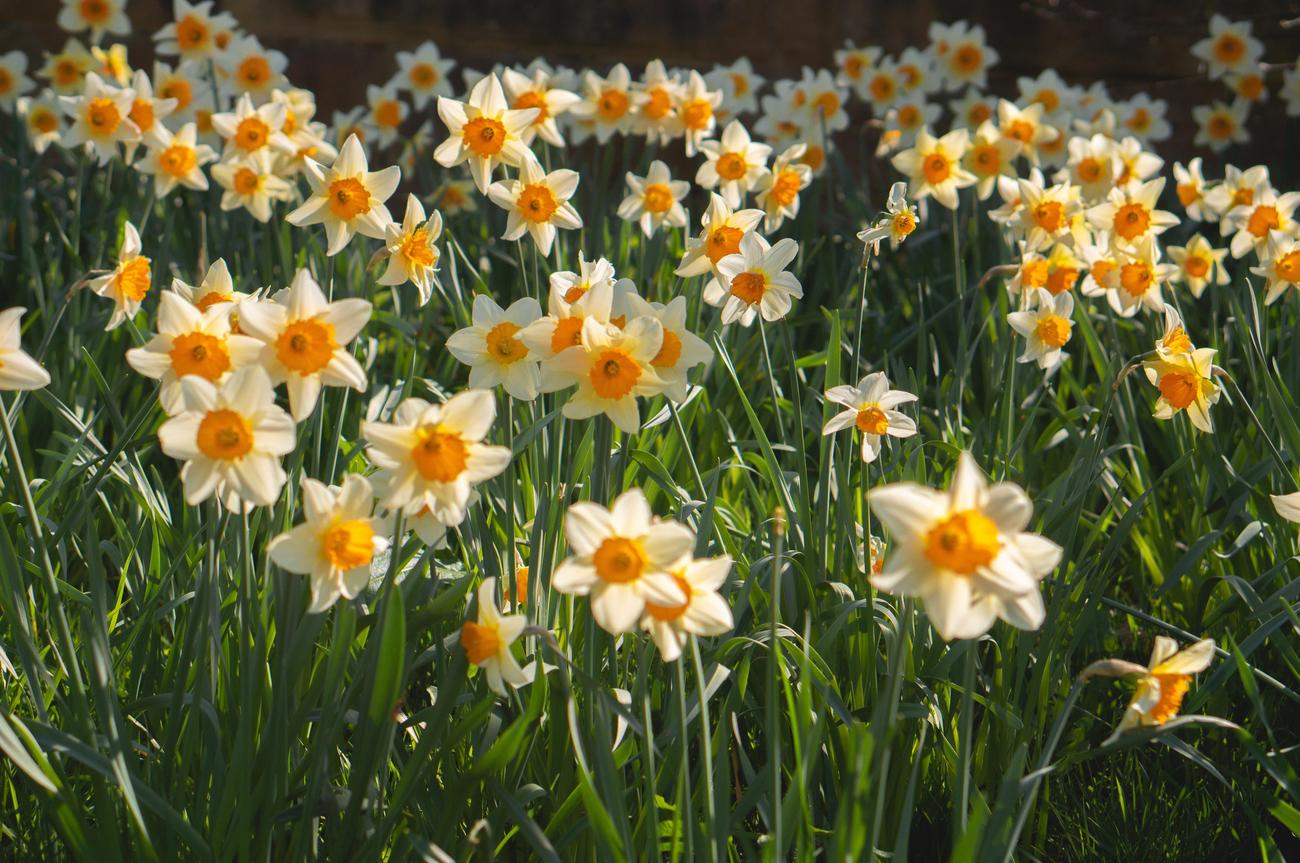Are Daffodils Poisonous to Dogs? Learn the Facts

As passionate pet owners, we strive to provide a safe and nurturing environment for our beloved dogs. However, it’s crucial to stay informed about potential hazards that may pose a threat to their well-being. One such concern that often arises is whether daffodils, with their vibrant and enticing blooms, can be toxic to our furry friends. As an experienced veterinarian specializing in small animal care, I am here to shed light on this common query and provide you with accurate information backed by extensive research. By understanding the facts surrounding daffodil toxicity, you can take proactive measures to keep your canine companions out of harm’s way. Join me on this informative journey as we uncover the truth about daffodils and their impact on our dogs’ health.
Are Daffodils Poisonous to Dogs?
When it comes to our furry friends’ well-being, it’s important to be aware of potential hazards that could jeopardize their health. As a responsible dog owner, you might be wondering, are daffodils poisonous to dogs? The short answer is yes. Daffodils, those lovely spring flowers that bring joy to our gardens, can be toxic to our canine companions. Let’s delve into the facts and shed light on why daffodils should be kept far away from our furry pals.
Daffodils contain a toxic alkaloid called lycorine, which can cause various problems if ingested by dogs. One common symptom of daffodil poisoning in dogs is gastrointestinal upset, leading to vomiting and diarrhea. Additionally, dogs may experience oral pain and irritation. It’s essential to be vigilant because all parts of the daffodil plant, including the bulb, leaves, flowers, and even the pollen, pose a threat to our furry friends.
Interestingly, even the water that has held daffodil flowers can become toxic. So, if your dog has access to vases or containers with daffodils, it’s important to ensure they can’t reach them. Prevention is key when it comes to daffodil poisoning as it can cause significant discomfort and illness for our four-legged pals.
While daffodil poisoning in dogs is rarely fatal, it’s still a cause for concern. Keep in mind that the severity of the symptoms will depend on the quantity ingested and the size of your dog. If your dog happens to nibble only a small amount of daffodil, you might not need to rush to the veterinary clinic right away. However, monitoring your dog closely for any adverse reactions is crucial.
In cases where a larger amount of daffodil has been ingested or if your dog is displaying severe symptoms, veterinary intervention is necessary. Remember, it’s always better to err on the side of caution and seek professional help when in doubt.
To underscore the importance of keeping daffodils away from dogs, let’s summarize the key points:
- Gastrointestinal upset and oral pain are common symptoms of daffodil poisoning in dogs.
- Daffodils contain the toxic alkaloid lycorine, which can cause heartbeat irregularities in dogs.
- All parts of the daffodil plant, including the bulb, leaves, flowers, and pollen, are toxic to dogs.
- Water that has held daffodil flowers can also be toxic to dogs.
- Daffodil poisoning is rarely fatal, but it can cause discomfort and illness in our furry friends.
- Veterinary intervention may not always be required if a dog ingests a small amount of daffodil.
- It is important to keep daffodils away from dogs to prevent poisoning.
In conclusion, when it comes to daffodils and our canine companions, it’s best to exercise caution. Remember, the beauty of these flowers should be enjoyed from a distance, far away from the reach of our furry friends. Stay informed, stay vigilant, and keep your dogs safe from the potential toxicity of daffodils.
Daffodils are not just your average garden flower. These vibrant, yellow blooms have a fascinating history and a few surprises up their petals. Did you know that daffodils are one of the first flowers to bloom in the spring, bringing a burst of color and joy after a long, cold winter? They symbolize renewal and new beginnings, making them the perfect flower to celebrate the changing seasons. If you want to learn more intriguing fun facts about daffodils, click here.
Are Tulips and Daffodils Poisonous to Dogs?
[youtube v=”GHojMnqwq0I”]
Tulips and Daffodils: Beautiful but Toxic Flowers for Dogs
Tulips and daffodils, two of the most popular flowers worldwide, may bring beauty to your garden or home, but they pose a significant danger to our furry friends. Both tulip and daffodil bulbs contain toxic substances that can seriously harm dogs. Tulip bulbs contain lactones, while daffodil bulbs contain lycorine. When ingested, these toxic substances can lead to various symptoms, including vomiting, diarrhea, drooling, irregular heart rate, and breathing difficulties[^1^][^2^].
Daffodils: A Recipe for Upset Stomach and More
Daffodils are highly poisonous to dogs. The entire plant, including the bulb, leaves, flowers, and even the pollen can pose a risk. Daffodils contain an alkaloid called lycorine, which can cause various issues in dogs. Ingesting daffodils can result in an upset stomach, making your dog vomit, feel extremely tired, and experience balance issues[^3^].
Tulips: More Than Just a Pretty Flower
Like their daffodil counterparts, tulips can cause severe harm when eaten by dogs. The bulbs, in particular, are highly toxic. If a dog ingests tulip bulbs, they may exhibit symptoms such as intense vomiting, depression, diarrhea, excessive drooling, and loss of appetite[^4^]. Ingesting tulips can be especially dangerous for our fur babies, and it’s crucial to keep them away from these beautiful but hazardous flowers.
Taking Precautions
As responsible dog owners, it is imperative to prioritize our pets’ safety by taking necessary precautions. Here are some important points to remember:
- Prevention: Keeping tulips and daffodils out of reach of dogs is crucial to prevent accidental ingestion and potential poisoning[^5^].
- Recognizing Symptoms: If you suspect your dog has ingested tulips or daffodils, monitor them closely for any adverse reactions. Symptoms may include vomiting, diarrhea, excessive drooling, changes in heart rate, difficulty breathing, or decreased appetite[^1^][^4^].
- Veterinary Intervention: It is essential to seek veterinary assistance if you notice severe or persistent symptoms. While small ingestions may not require immediate attention, it’s always better to be safe and consult a professional to ensure your dog’s well-being[^5^].
In conclusion, despite their charm and allure, both tulips and daffodils can be highly toxic to dogs. Their bulbs contain toxic substances that can lead to various gastrointestinal and respiratory issues. As responsible pet owners, it is crucial to keep these flowers out of our furry friends’ reach and to closely monitor their well-being if ingestion is suspected. Remember, prevention is always better than cure when it comes to keeping our beloved pets safe and healthy.
“As a dog owner, it’s essential to be aware of the dangers that tulips and daffodils can pose to our furry friends. Recognizing the symptoms of poisoning and taking preventive measures can help ensure their well-being and avoid unnecessary risks.”

FAQ
Is ingestion of daffodils toxic for dogs?
Yes, ingestion of daffodils can be toxic for dogs. The entire plant, including the bulb, leaves, flowers, and even the water that has held the flowers, contains the toxic alkaloid lycorine. It can result in gastrointestinal upset and oral pain in dogs.
What are the symptoms of daffodil poisoning in dogs?
Symptoms of daffodil poisoning in dogs may include gastrointestinal upset, oral pain, and irregular heartbeat. These symptoms can cause discomfort and illness in dogs.
Can daffodil poisoning be fatal for dogs?
Daffodil poisoning is rarely fatal in dogs. However, it can still cause significant discomfort and illness for our furry friends. It is important to seek veterinary intervention if your dog ingests a large amount of daffodils or exhibits severe symptoms.
Do dogs need veterinary treatment for ingesting a small amount of daffodils?
Ingesting a small amount of daffodils may not always require veterinary treatment for dogs. However, it is essential to monitor your dog closely for any signs of discomfort or illness. If symptoms persist or worsen, it is advisable to consult a veterinarian.
How can dog owners prevent daffodil poisoning?
To prevent daffodil poisoning in dogs, it is crucial to keep daffodils away from their reach. This includes the bulb, leaves, flowers, and even the water that has held the flowers. Ensuring a safe and secure environment for your dog can help minimize the risk of daffodil poisoning.
















